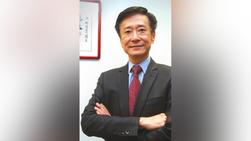Tourism-sector Lawmaker Yiu Si-wing urged the government to relax the social-distancing ban on public gatherings of over four people to allow for local tours and bail out the battered industry.
Hampered by last year’s prolonged street violence and this year’s pandemic, the sector is in troubled waters, with much more bankruptcies and layo s had it not been for the three rounds of government subsidies, Yiu told China Daily on Wednesday.
Relaxing the rule can help travel agencies generate income by organizing tours to local tourist spots at a time when cross-border travel is nearly impossible, he said.
Yiu suggested precautions such as medical insurance with COVID-19 coverage, and taking temperatures of tourists before they board a bus, which must be at least half-empty, among other socialdistancing measures during sightseeing and meals.
Industry players will be willing to follow appropriate control measures, Yiu said.
A proposal has been made to the Tourism Commission, pending approval by the Food and Health Bureau, he revealed.
The four-person social-distancing rule, starting today, exempts religious gatherings at mosques, churches, monasteries and temples.
 Lawmaker Yiu Si-wing speaks to China Daily on Wednesday. (PARKER ZHENG / CHINA DAILY)
Lawmaker Yiu Si-wing speaks to China Daily on Wednesday. (PARKER ZHENG / CHINA DAILY)
Now that the pandemic is under better control, the government may consider making an exception for the tourism sector, which has barely made any income since January, when the coronavirus struck, the chairman of China Travel Service (HK) said.
Relaxing the rule can help travel agencies generate income by organizing tours to local tourist spots at a time when cross-border travel is nearly impossible, tourism-sector Lawmaker Yiu Si-wing said
Unprecedented difficulty
ALSO READ: Tourism in HK suffers sharp drop for holiday
The number of incoming tourists slumped by 39 percent yearon-year in the second half of last year, after months of s social unrest erupted in mid-June.
Any hope of a turnaround in this year has been dashed by the COVID-19 pandemic, with hotels and airlines suffering big losses, Yiu said.
“The travel agencies had virtually no revenue for eight months this year. The revenue of the hotels fell by about 70 percent, while the airlines lost 99 percent of their income. Such a di cult position is unprecedented,” Yiu said.
“I’m afraid there will be massive closures and layo s if the government ceases the Employment Support Scheme in November,” he added.
Taking Hong Kong’s fl agship airline, Cathay Pacifi c Airways, as an example, Yiu predicts it will lay off a huge number of employees as it did not apply for assistance from the second-phase Employment Support Scheme under the Anti-epidemic Fund, while the number of international fl ights has decreased drastically. He cited market analysis that Cathay will fi re at least 30 percent of its 20,000-plus Hong Kong-based employees.
“It is a rather gray outlook for the travel industry because we cannot see the future and when travel can resume.”
The lawmaker expressed hope for the launch of a health code mutually recognized by authorities of Hong Kong, Macao and Guangdong province to facilitate travel within the area.
Discussions between the three places were halted by Hong Kong’s third outbreak of COVID-19 in July. The Chinese mainland resumed travel visas to Macao on Sept 23.
With the code in place, Hong Kong can move on to creating “travel bubbles” with other countries and regions, Yiu said.
READ MORE: Travel bubbles 'key to get tourism rolling'
Health code
Hong Kong Chief Executive Carrie Lam Cheng Yuet-ngor said the code is under consideration to let Hong Kong people currently on the mainland visit their relatives, do business and see a doctor in the city without going through the 14-day quarantine.
“The government’s attitude is very proactive, and I hope it will expedite the discussions,” he said.
“The process shall advance step by step, from visit of relatives and medical consultations to going to work and school before the checkpoints are reopened for travel.
“We hope we will have group tours to the mainland again in November. Depending on the capability of nucleic acid tests of the Hong Kong laboratories, the daily quota may be 1,000-2,000 at first, before being raised to 5,000-10,000, if no problem arises.”
The ideal price for the test should be under HK$200 (US$26), he added.
Yiu praised the recent mass testing program, which detected 42 COVID-19 patients among the nearly 1.8 million participants, as instrumental in developing “travel bubbles”.
“The number of participants is satisfactory despite criticisms and smears,” he said.
“The result can serve as a useful reference to show the actual situation in Hong Kong when negotiating over ‘travel bubbles’.”


